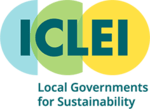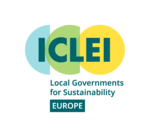Webinar Recap: The power of citizens to build more resilient communities with a systemic and integrated approach to sustainable territorial development

The Mediterranean climate with its hot dry summers and mild wet winters in characterised by short-duration storms known as “gota fría” occurring in the fall, and the confluence of a gently sloped terrain, a heavy rain at the basin headwaters and the indulgent excessive urban development over areas susceptible to flooding in the low-lying coastal region of Valencia Community in Spain results into ever more frequent catastrophic flooding events, exacerbated by the Climate Change, as we have experienced on 29 October this year. This strengths the urgent for raised awareness on weather-related extreme events, intensified in frequency and severity by CO2 emissions, and the importance of a less permissive urban development, improved water resilient infrastructures, impaired watershed retention capacity recovery and use of re-calibrated and integrated hydrological-hydraulic-meteorological modeling well connect to warning systems for preparedness and prompt response. Citizen science plays a crucial role on this: to drive towards community resilience, urban co-creation and educational campaigns, but also to coordinate actions after an extreme wether event has occurred, empowering citizens with tools to be deeply involved in the pre-development, co-design and aid assistance phases. Nature-based solutions (NBS), ecosystem-based planning, and an integrated approach to environmental watershed zoning, territorial planning and hydraulic engineering, is substantial towards achieving a more resilient future for all our countries in face of Climate Change, uncontrolled urban sprawl, water and soils pollution and coastal storm surges. These issues have been discussed during the UrbanByNature Horizon Europe funded NBSEduWORLD Project webinar last 19th of November, 2024.
The power of the grassroots
The citizens’ solidarity in the middle of the chaos of the tragic consequences of the recent flooding occurred in the Mediterranean low-lying coastal region of the south of Valencia, Spain, is a vivid example that it is us, the society, who can drive a real transformational change, as far as we are moved by compassion and the willingness to support others who suffer. This flooding has reached records in rainfall intensity as registered by AEMET (one of the main meteorological agencies in Spain) for specific locations, which can link to potential effects from Climate Change. Urban development over the last decades in compromised regions, reduced the infiltration, retention and increased water run-off velocities of the high volumes of water flashed down from the mountain range where rainfall intensified during the hours before the flooding catastrophe took place. Locals were devastated by the consequences of such a tremendous event. However, the compassion and solidarity from ordinary people travelling from different parts of Spain helped locals to receive support from outside and have hope to face the loss of material capital and lives. Locals organised themselves using shared digital maps and Excel Spreadsheets to coordinate volunteers. This ad hoc use of citizen science demonstrated the power of informal networks and local knowledge to address environmental crises.
But the experience also revealed structural shortcomings. Traditional infrastructure proved inadequate, and the fact that the community had to rely on improvised means highlighted the importance of forward planning. Hybrid solutions are needed, a more conscious urban development control as well. Re-evaluating and reinforcing current hydraulic infrastructures should more and more be combined with integrating active infrastructure and natural retention systems that accommodate the over-exceeding volumes of river flows and water run-off. Moreover, that takes the advantage of that stored water being reused. The Albufera natural lagoon served as an example of the power of nature to aminorate the sediment inputs into the sea from DANA.
Co-creating greener cities
In Belgrade, Serbia, the focus shifted from crisis response to proactive transformation. A controversial development plan for a linear park sparked an inclusive co-creation process that brought citizens, planners and experts together. Through competitions, workshops and mapping exercises, the public helped shape a park design that reflected community priorities and ecological principles.
This participatory approach not only prevented overdevelopment, but also introduced innovative elements such as urban agriculture, rainwater harvesting and biodiversity-enhancing features. It also changed attitudes within local government, encouraging a deeper appreciation of the benefits of green infrastructure. The project demonstrated that co-creation can turn scepticism into trust and promote solutions that balance environmental and social needs.
New perspectives from students
The winners of the Belgrade case at this year's NBS EduWORLD Hackathon also presented their innovative solutions. The students took on a neglected riverbank in Belgrade and developed a vision that combines nature conservation and social engagement. Their concept for an urban wetland and wildlife park used 'urban acupuncture' to make small strategic interventions that maximised environmental and social impact.
By integrating wetlands for flood protection, green corridors for biodiversity and accessible spaces for education and recreation, the proposal demonstrated the value of holistic thinking. It also highlighted the importance of giving young people the opportunity to engage with real-world challenges - an investment that encourages creativity and innovation.
Lessons Learned: A call for inclusion and action
- Harnessing community knowledge: Citizen science is not just a data collection tool, it's a way to democratise planning and build trust between institutions and communities.
- Transdisciplinary collaboration: Successful NBS implementation requires breaking down silos - linking water management, urban planning and ecosystem dynamics into holistic strategies.
- Education as a catalyst: Engaging students with real-world challenges not only enriches their learning, but also brings fresh perspectives to entrenched problems.
- The role of policy and governance: While grassroots efforts are critical, institutional flexibility and political will are needed to scale and sustain NBS initiatives.
The stories from Valencia and Belgrade revealed a common truth: building resilience requires not only technical solutions, but also inclusive processes that include diverse voices. Community-driven efforts, whether in response to emergencies or in shaping urban plans, can lead to outcomes that are more equitable, sustainable and reflective of local needs.
Education and experimentation also emerged as key themes. From hackathons to citizen mapping, these initiatives highlighted the importance of hands-on learning and cross-disciplinary collaboration. They remind us that fostering resilience is as much about nurturing relationships and shared purpose as it is about the solutions themselves.

Our partners












The UrbanByNature programme is funded by the Horizon 2020 Framework Programme of the European Union under Grant Agreements No. 730222 and No. 776604. It has received funding for an update by the Horizon Europe Programme under the Grant Agreement No 101003818. The sole responsibility for the content of this website lies within UrbanByNature and in no way reflects the views of the European Union.